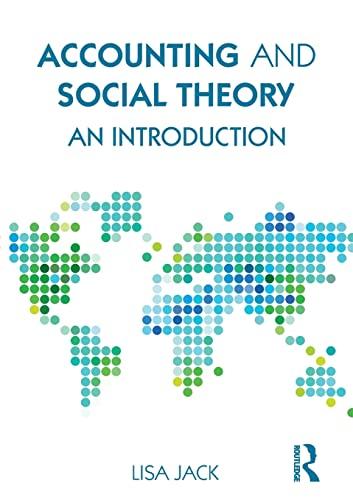1) Assistance provided by CPAs for tax preparation and tax planning Accountint Tax Services Forensic Accounting 2) Professional designation administered by the ACFe in



1) Assistance provided by CPAs for tax preparation and tax planning Accountint Tax Services Forensic Accounting 2) Professional designation administered by the ACFe in recognition of qualifications for a specialty area within forensic accounting Management Accountant Certified Fraud Examiner Cor Accounting Private Accountant Fraud Examiner The articles, lecture and textbook for Unit 1 all contain variations of the definition of forensic accounting. What was your understanding of what forensic accounting was before you read the material in Unit 1? If you had to explain what forensic accounting was to someone with no understanding of it, what would you say? The study of forensic accounting uses three different approaches. One approach uses audit as a foundation with emphasis on internal control and understanding how systems work. A second approach uses fraud investigation as the basis. The third approach is eclectic in nature and covers the many areas under the forensic accounting umbrella to include tax and other fraud, money laundering, dispute resolution, litigation support, computing economic damages, bankruptcy, divorce, identity theft, organized crime, terrorism investigations, cybercrime and business valuations. Which approach would you support and why? If your CPA firm was offering services in forensic accounting would you specialize or be general in nature? If you specialized, what area would you want to specialize in? Explain. SHORT ANSWER QUESTIONS 1. What are the key elements of the definition of forensic accounting? 2. What does the word forensic mean? 3. What are the two areas into which the practice of forensic accounting is typically divided? 4. How does auditing differ from forensic accounting? 5. By whom and when was the term forensic accounting coined? 6. What are some of the knowledge and skills required in forensic accounting? (Name at least four.) 7. What are two examples of types of financial cases that require investigation? 8. What is the difference between fact witnesses and expert witnesses? 9. What are the three management activities associated with fraud risk management? 10. What special skills and knowledge are required to conduct forensic accounting investigations? (Name at least three.) 11. Are communication skills critical in forensic accounting? Why or why not? 12. What are two areas in which forensic accountants, as expert consultants, can give advice? 13. What are the names of three organizations that are applicable to forensic accountants and what factors play a role in determining the organizations to which forensic accountants belong? 14. What are the names of four credentials that are specific to the forensic practice of valuation? 15. Why is the skill of problem-solving so important in forensic accounting?
Step by Step Solution
There are 3 Steps involved in it
Step: 1
Questions and Answers 1 What are the key elements of the definition of forensic accounting Forensic accounting involves the integration of accounting auditing and investigative skills to examine finan...
See step-by-step solutions with expert insights and AI powered tools for academic success
Step: 2

Step: 3

Ace Your Homework with AI
Get the answers you need in no time with our AI-driven, step-by-step assistance
Get Started


